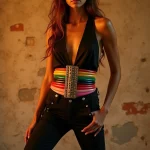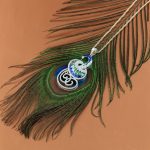Essential Features of a High-Quality Vegan Winter Coat
Choosing a high-quality vegan winter coat means understanding the foundational materials and insulation that define its worth. Vegan materials, such as recycled polyester, cotton, and hemp, offer a sustainable option that mimics the warmth and durability of traditional coats without using animal products. These materials are not only cruelty-free but also help reduce the environmental impact.
A significant element of a winter coat is its insulation. The insulation types used determine how effectively a coat can retain heat. Some popular vegan options include synthetic insulation, such as PrimaLoft and Thinsulate, well-known for their light weight and excellent thermal retention. These materials replicate the warmth provided by natural down but are derived from eco-friendly sources.
Also to see : Elevate Your Style: Essential Tips for Achieving Oversized Sweater Chic!
Opting for a vegan winter coat supports both style and ethics. Not only do these coats come in a variety of trendy and versatile designs, but they also embody an ethical lifestyle choice. Their cruelty-free production and vegan materials promote environmental sustainability and animal welfare, presenting a stylish yet conscientious fashion statement. With these features, investing in a vegan winter coat becomes a holistic decision that supports both personal warmth and broader ecological considerations.
Insulation Types and Their Benefits
Understanding insulation types is crucial for evaluating the effectiveness of vegan winter coats. Synthetic insulation materials like PrimaLoft and Thinsulate provide great alternatives to traditional down. These eco-friendly options are specifically engineered to mimic the warmth and compressibility of down, ensuring comfort in cold weather.
This might interest you : Elevate Your Look: The Definitive Handbook for Styling Wide Belts with Every Dress Style
Synthetic Insulation
Synthetic insulation harnesses advanced technology to deliver excellent thermal properties. Materials like PrimaLoft offer superior warmth-to-weight ratios and are designed to remain warm even when wet. This enhances the coat’s capability in damp conditions, providing a clear advantage over down, which loses warmth when saturated.
Down Alternatives
Alternatives to traditional down insulation include a variety of innovative materials. Some of these alternatives not only perform equally well in terms of warmth but also allow for breathability. For example, Thinsulate insulation is well known for maintaining warmth without causing excess heat build-up, making it suitable for fluctuating temperatures.
Climate Impact of Different Insulation Types
Choosing insulation that aligns with ecological values is important. Synthetic options often utilise recycled materials, minimising environmental impact. Furthermore, their production results in less waste and pollution compared to conventional methods. By selecting these eco-friendly options, consumers contribute to reducing their carbon footprint while enjoying warmth and comfort.
Water Resistance and Other Functional Features
A winter coat’s water resistance is crucial for tackling wet and snowy conditions. High-quality vegan winter coats often include water-resistant treatments or coatings, like DWR (Durable Water Repellent), which prevent moisture from penetrating the fabric. This feature helps maintain warmth and keeps the wearer dry during adverse weather.
Breathability is just as important as water resistance, especially for maintaining comfort. Fabrics like Gore-Tex or similar vegan alternatives ensure breathability while protecting against moisture. By allowing perspiration to escape, these materials prevent overheating and ensure the wearer stays comfortable.
Several functional features add to a coat’s practicality. Adjustable hoods and cuffs offer additional protection against the elements. Moreover, strategically placed pockets provide convenient storage with easy access to essentials. Some coats even offer cinching options, allowing wearers to adapt to varying weather conditions effortlessly.
Lastly, some eco-friendly coats include reflective elements or customisable features, enhancing both safety and style. All these features work together to create a comprehensive package that not only keeps one warm but also adequately equipped for varying winter scenarios. A thoughtfully chosen winter coat balances these elements, ensuring optimal function and comfort.
Style Options and Aesthetic Considerations
In the realm of stylish vegan coats, the fashion scene is abuzz with trendy designs and versatile looks. Current trends gravitate towards sleek silhouettes and minimalistic detailing that exude both sophistication and practicality. From tailored coats to oversized parkas, each design caters to a unique sense of style. Trends focus on creating timeless pieces that seamlessly blend with various wardrobes.
Popular Styles and Trends
Vegan winter coats today showcase a remarkable variety. Classic trench coats have made a comeback, offering elegance for formal settings. Bomber jackets, known for their casual appeal, are reimagined with vegan materials. Each style enhances personal expression while upholding ethical choices.
Colours and Patterns
The colour options in vegan coats are as alluring as their styles. Rich earth tones dominate the palette, providing versatility and warmth. For those seeking boldness, jewel tones and vibrant patterns accentuate individuality, making them perfect for standing out, even in a sea of muted winter hues.
Versatility for Different Occasions
Selecting a vegan winter coat isn’t just about warmth; it’s about versatility. Tailored styles transition smoothly from office wear to evening outings. Meanwhile, casual designs, like the ever-popular puffer coat, ensure comfort during outdoor adventures. Whether dressing up or down, vegan coats offer adaptable fashion for any occasion.
Recommended Brands for Vegan Winter Coats
Exploring the realm of vegan coat brands reveals a vibrant array of options dedicated to ethical fashion. These brands uphold high standards, offering stylish choices without compromising on ethical commitments.
Top Brands to Consider
- Save The Duck: Known for its innovative use of plumtech, a synthetic down alternative, this brand offers warmth and environmental benefits. Its sleek designs appeal to both casual and professional settings.
- Wuxly Movement: This Canadian brand emphasizes sustainability, utilising exclusive animal-free materials and ethical manufacturing. Their coats are renowned for durability and reflective detailing for safety.
- HoodLamb: Specialising in hemp-based materials, HoodLamb combines rugged style with eco-conscious design. Its winter coats withstand harsh elements while promoting environmental responsibility.
Criteria for Ethical Fashion
Choosing brands that adhere to ethical fashion requires evaluating their practices, such as using eco-friendly materials and ensuring fair labor conditions. Transparency in production processes and consistency in sustainability initiatives demonstrate commitment to ethical standards.
Incorporating these coat brands into your wardrobe not only assures comfort and style but also supports broader ecological and social objectives. User reviews consistently praise their functionality and durability, reinforcing their stature in the world of ethical fashion.
Tips for Choosing the Right Vegan Winter Coat
When choosing a vegan coat, finding the correct fit and sizing is crucial. Coats that are too tight can restrict movement, while too loose ones might not provide adequate warmth. To ensure the right fit, consider trying on coats with layers typically worn underneath during winter. This practice helps in assessing both comfort and thermal efficiency.
Understanding your personal style is pivotal in making a fitting choice. Whether you prefer minimalistic designs or bold, contemporary looks, selecting a style you feel confident in ensures that the coat complements your wardrobe. Think about the occasions you would wear the coat and align your choice with those settings for maximum versatility.
When purchasing a vegan winter coat online, read reviews to gather insights on sizing and material quality. Ensure to check return policies for a risk-free shopping experience. If possible, try visiting physical stores before buying online to personally evaluate the coat’s qualities, from texture to functionality. This guarantees satisfaction with both style and practicality, offering a seamless blend of personal expression and ethical responsibility.
Caring for Your Vegan Winter Coat
Proper care ensures the longevity of your vegan winter coat, keeping it looking great and performing optimally through multiple seasons. Understanding the right maintenance techniques is essential for preserving its function and style.
Cleaning Instructions
When it comes to cleaning, always read the label for specific guidance on vegan materials used in the coat. Most vegan materials like polyester and cotton blends can be safely machine washed. However, use a gentle cycle and mild detergent to protect the fabric. Air drying is preferable as heat can damage synthetic insulation’s effectiveness and degrade eco-friendly options.
Storage Tips
Appropriate storage keeps your coat in excellent condition during off-seasons. Store in a cool, dry place to prevent mould and mildew. Avoid using wire hangers that could stretch the shoulders. Instead, opt for padded hangers which maintain the coat’s shape.
Reconditioning Materials
Reconditioning involves simple practices to refresh your coat’s appearance. For minor wear and tear, consider gentle brushing or using a lint roller to keep the material clean. If the coat loses water resistance, apply a new water-repellent treatment specifically designed for vegan and synthetic materials to revive its protective qualities.
These practices ensure your vegan coat remains a functional and aesthetic asset.









